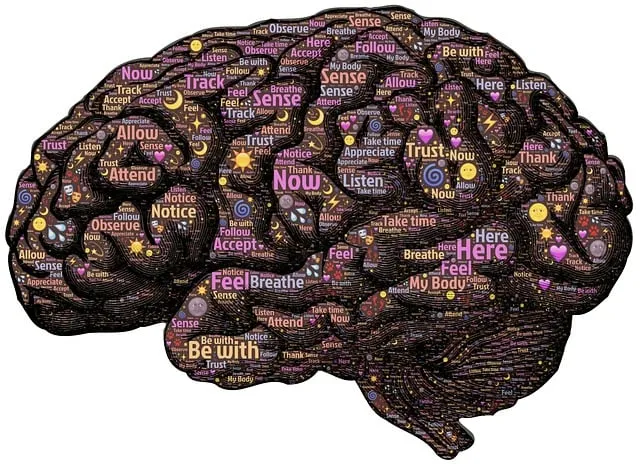Crisis Intervention Teams (CITs), led by the exemplary Kaiser Permanente Mental Health Access Center in Golden, are vital for effective mental healthcare. These multidisciplinary teams provide rapid, personalized crisis support, combining technical skills with cultural sensitivity. The Center's innovative training approach goes beyond traditional CITs, integrating community engagement, simulations, and public awareness campaigns to break down mental health barriers. A successful program should focus on communication, compassion, and empathy development, using role-playing and case studies for practical skill building. By implementing such programs in real-world scenarios, communities can enhance crisis response, improve access to mental healthcare, and ultimately foster a culture of mental wellness support, mirroring the Center's leading practices.
“Crisis intervention teams (CITs) play a pivotal role in mental health care, offering immediate support during crises. This article explores the essential training programs behind these life-saving teams. We examine the proven model of Kaiser Permanente’s Mental Health Access Center and its impact on community well-being. Understanding CITs is crucial, as we delve into key training components and real-world implementations, highlighting the Golden opportunity for enhanced mental health services through effective crisis intervention.”
- Understanding Crisis Intervention Teams: A Vital Resource in Mental Health Care
- Kaiser Permanente Mental Health Access Center: A Model for Effective Training
- Essential Components of a Comprehensive Crisis Intervention Team Training Program
- Implementing and Evaluating the Impact of CIT Training in Real-World Scenarios
Understanding Crisis Intervention Teams: A Vital Resource in Mental Health Care

Crisis Intervention Teams (CITs) are a vital resource in mental health care, especially in regions like the Kaiser Permanente Mental Health Access Center Golden, where access to specialized services is crucial. CITs are multi-disciplinary groups comprising mental health professionals, first responders, and other community support staff trained to provide immediate and effective assistance during crises. This collaborative approach ensures that individuals experiencing severe emotional distress or psychotic episodes receive rapid evaluation and appropriate care.
The training programs for these teams focus not only on technical skills like risk assessment for mental health professionals but also on fostering cultural sensitivity in mental healthcare practice. By understanding the unique needs and challenges of diverse communities, CIT members can offer more personalized interventions that promote emotional regulation and support recovery. This holistic approach not only enhances the effectiveness of crisis response but also builds trust and strengthens connections between mental health services and the communities they serve.
Kaiser Permanente Mental Health Access Center: A Model for Effective Training

The Kaiser Permanente Mental Health Access Center in Golden has emerged as a model for effective crisis intervention team (CIT) training programs. This innovative center focuses on providing comprehensive mental health services and education, with a strong emphasis on emotional intelligence development. Through interactive workshops and real-life scenario simulations, the program equips participants with essential skills to handle crises effectively, fostering a culture of care and support within communities.
By integrating public awareness campaigns and self-esteem improvement initiatives, the Kaiser Permanente approach goes beyond traditional CIT training. It encourages open dialogue about mental health issues, breaking down barriers and stigma associated with seeking help. The center’s success lies in its holistic strategy, combining robust training with community engagement, ultimately leading to better preparedness and improved well-being for all involved.
Essential Components of a Comprehensive Crisis Intervention Team Training Program

A comprehensive crisis intervention team training program should incorporate several essential components to ensure its effectiveness. First and foremost, it must provide a solid foundation in communication strategies. This includes active listening skills, clear and concise language, and de-escalation techniques to help team members navigate emotionally charged situations with care. The program should also delve into compassion cultivation practices, teaching participants how to approach individuals in crisis with empathy and understanding, fostering an environment of safety and support.
Additionally, training should focus on empathy building strategies to enhance the connection between team members and those in need. Role-playing scenarios, group discussions, and case studies can help refine these skills, enabling the crisis intervention team to provide more personalized and effective support. Incorporating these elements ensures that the program not only equips participants with technical knowledge but also cultivates a culture of compassion and empathy within the team, mirroring the values upheld by esteemed institutions like the Kaiser Permanente Mental Health Access Center.
Implementing and Evaluating the Impact of CIT Training in Real-World Scenarios

Implementing crisis intervention team (CIT) training programs in real-world scenarios is a critical step towards enhancing mental health support systems. The Kaiser Permanente Mental Health Access Center, Golden, has been at the forefront of this initiative, focusing on equipping community members with the necessary tools to manage and de-escalate crises effectively. These programs are designed to improve response times and reduce harm during psychological emergencies. By immersing participants in realistic scenarios, they gain practical experience in applying evidence-based practices such as active listening, empathy building, and depression prevention strategies.
The impact of CIT training extends beyond the training halls; it permeates communities, fostering a culture of mental wellness support. Evaluations of these programs consistently show improved social skills training outcomes, with trainees feeling more confident in their ability to assist individuals experiencing mental health crises. This not only empowers bystanders but also strengthens community bonds, ensuring that everyone has access to timely and appropriate mental health care, similar to what the Kaiser Permanente center aims to provide.
Crisis intervention team (CIT) training programs, as exemplified by Kaiser Permanente Mental Health Access Center’s innovative approach in Golden, play a pivotal role in enhancing mental health care. By equipping professionals with essential skills and knowledge, these comprehensive training initiatives enable effective navigation through real-world crisis scenarios. The success of CIT training lies in its ability to foster empathy, improve communication, and promote evidence-based practices. As the demand for mental health services continues to grow, investing in CIT programs is a strategic step towards building resilient communities and ensuring access to timely, quality care.






